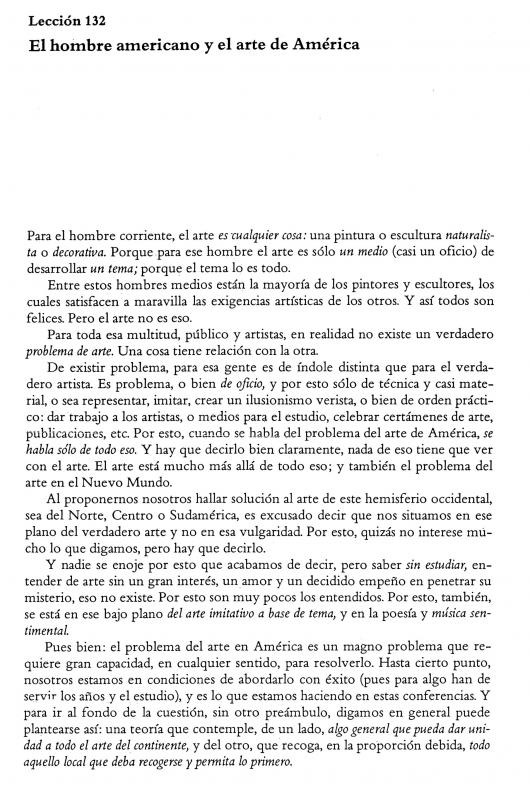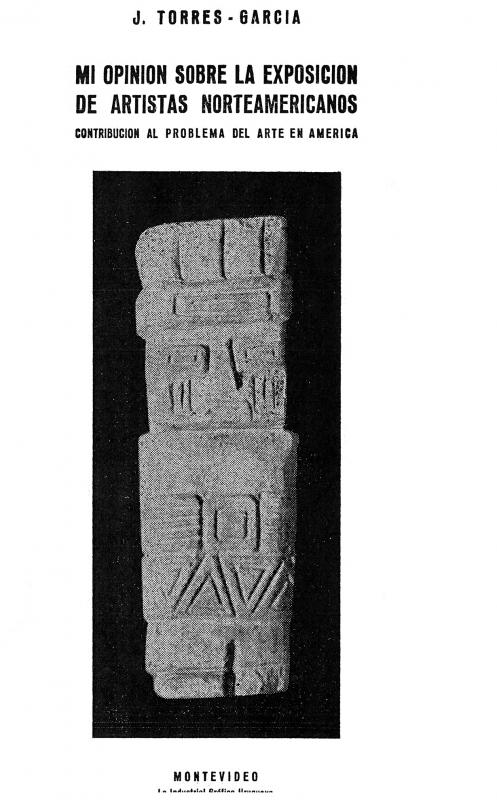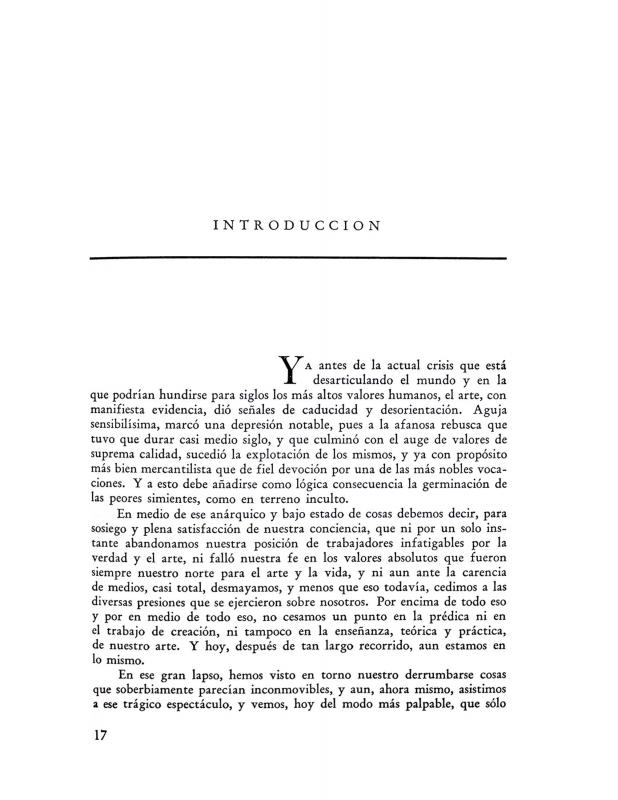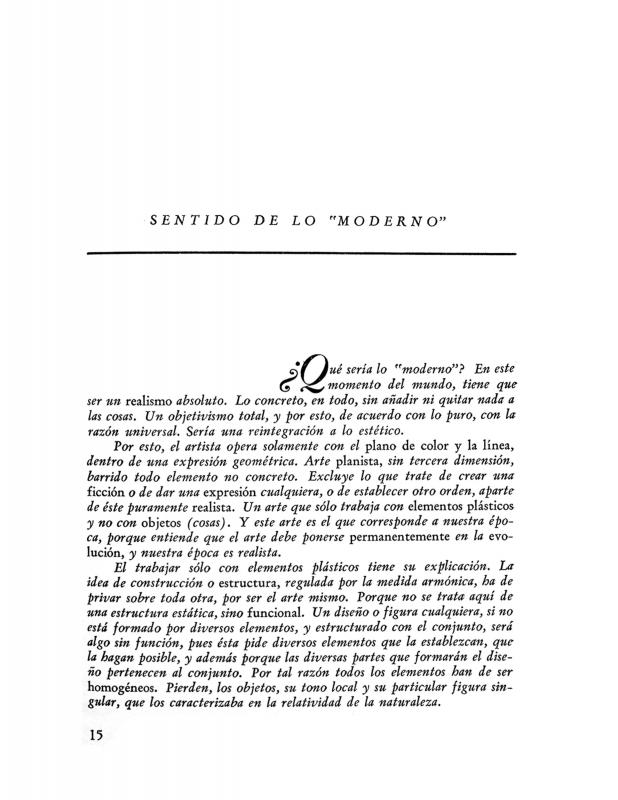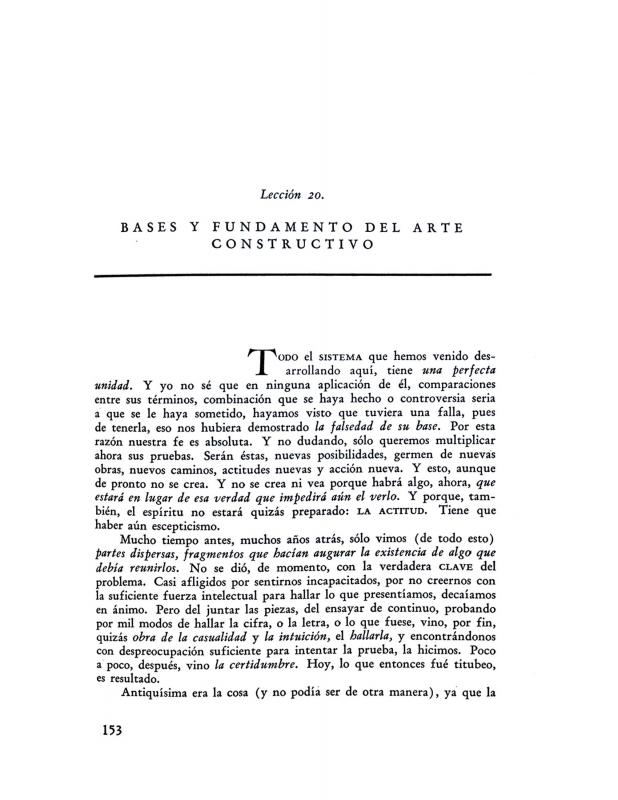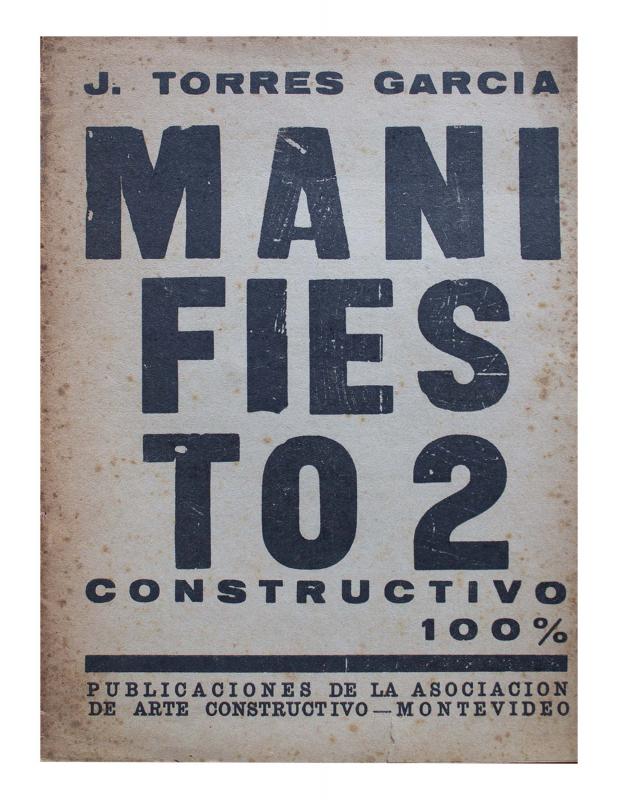The critic Cipriano Santiago Vitureira developed an outstanding intellectual role as a writer, a poet, and an active promoter of cultural groups, especially in the 1930s and 1940s in the local cultural milieu of Montevideo. In his book Arte simple (1937), he dedicates a chapter to the Constructivist art style advocated by Joaquín Torres García (1874−1949). Coming from overseas, his return to his country (1934) was considered a “great celebration” after recognizing the “European prodigality” that he teaches in “[...]” “At these latitudes where savagery makes us wonderfully clean.” Vitureira absorbs from Joaquín Torres García his intellectual commitment to geometric simplicity as his primary aesthetic objective. For the critic, the reticular division of the landscape plane should be interpreted as finding its primary and eternal elements. From there, his interest was then to place these at the core of contemporary primitive trends. The author critically presented him as an artist-philosopher, a promoter of a static lyricism through the “mysticism of things.” Such an affinity was shown by Vitureira toward Joaquín Torres García distancing him from being unanimous in the Uruguayan artistic milieu, as shortly after Joaquín Torres García return aroused controversy and rejection from the artistic groups relating to their formal, ideological and doctrinal postures. It was even stated that the “abstract" principles of his doctrinal preaching on constructive universalism did not recognize the urgent social issues of the time. [For futher reading, please refer to the ICAA digital archive for the following texts written by Joaquín Torres García: “Con respecto a una futura creación literaria” (doc. no. 730292), “Lección 132. El hombre americano y el arte de América” (doc. no. 832022), “Mi opinión sobre la exposición de artistas norteamericanos: contribución” (doc. no. 833512), “Nuestro problema de arte en América: lección VI del ciclo de conferencias dictado en la Facultad de Humanidades y Ciencias de Montevideo” (doc. no. 731106), “Introducción [en] Universalismo Constructivo” (doc. no. 1242032), “Sentido de lo moderno [en Universalismo Constructivo]” (doc. no. 1242015), “Bases y fundamentos del arte constructivo” (doc. no. 1242058), and “Manifiesto 2, Constructivo 100%” (doc. no. 1250878)].


